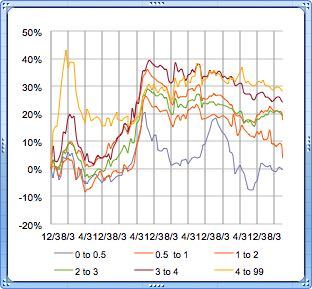Can you save the sales tax by shopping on the Internet?
In nearly every case the answer is no.
Shoppers are accustomed to the idea that when they buy something at a store, the merchant will add a little bit at the end that will be identified as sales tax. It ranges from a few percent up to as high as 10.25% in Chicago. The rate charged will be based on the location of the store and usually people just grumble about it, pay it and that’s the end of the deal. The merchant will accumulate their tax collections and periodically submit them to the taxing authorities who will then distribute them to the appropriate agencies. There are substantial penalties on the merchants who screw this up but it rarely comes back to haunt the consumer. When it gets sticky is if the merchant is in another state or even another country.
Merchants who don’t have a presence in the state aren’t required, or in most cases even permitted, to collect taxes. The burden is then on the consumer. Every state in the US has a sales tax except Alaska, Delaware, Montana, New Hampshire and Oregon and some cities within those states have them. Arizona ,Hawaii and New Mexico have excise and transactional privilege taxes and although they aren’t technically sales taxes they have similar effects to the consumer. Every state or city that has a sales tax also has an identical ‘use’ tax that applies to transactions that would otherwise be taxable but that don’t involve a merchant who is licensed by the state to collect taxes. This includes purchases from out of state and international merchants. With high dollar items that can be easily shipped long distances, like diamonds, this can be a significant part of the deal. Not surprisingly, shoppers are eager to shop in a way that avoids this expense – and some merchants exploit the difference by advertising that they don’t collect taxes from their out of state clients. This is true as far as it goes but it’s important to remember that just because THEY aren’t obligated to collect it doesn’t mean that YOU aren’t obligated to pay. Don’t use a merchant’s advertisement (or an article on a free Internet forum for that matter) as a basis for understanding your own tax obligations. Check with your state and/or your own professional tax adviser.
If you make a purchase from a merchant who doesn’t collect taxes and you live in a community that does, check the website of your home state taxing authorities to see what, if anything, you owe and if so, how you are supposed to submit it. With some you will have a line item on your annual state tax return, some will have a special form that you are required to submit and some will have a combination of both depending on the amount of the transaction. In most cases they make it easy to find the rules from the state website if you search for ‘sales tax’ or ‘use tax’ as well as providing you with links to the appropriate forms. Sometimes you will need to file and pay immediately when you make a large transaction and sometimes you will need to accumulate records and pay on an annual basis. Again, check your own state to see what rules apply to you. They are not all the same. Enforcement of these laws is increasing across the country as Internet based business grows and as the financial woes of the states increase and in every case there are penalties and interest for people who are caught out of compliance. Ignorance is no excuse.
Expect these rules to change.
There are literally thousands of different entities charging the tax and every one of them can change their rules at will, which makes it logistically difficult for a merchant to know how much to collect or how to remit it, even if they wanted to, but there’s a strong incentive on the states to cooperate with one another and make this process run more smoothly. For the states it’s a multi-billion dollar problem. Any changes will be posted by your own taxing authorities on their own websites and it seems likely that there will be some noise about it in the news but in the end, it is your obligation as a taxpayer to know the rules for your own community. Again, ignorance is no excuse.
by Neil Beaty
Professional Appraisals in Denver
http://www.americangemregistry.com/

Click here to Discuss on Forum











